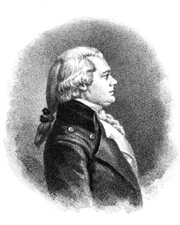Chauncey Goodrich
| Chauncey Goodrich | |
|---|---|
 |
|
|
United States Senator from Connecticut |
|
|
In office October 25, 1807 – May 13, 1813 |
|
| Preceded by | Uriah Tracy |
| Succeeded by | David Daggett |
| Member of the U.S. House of Representatives from Connecticut's At-large district |
|
|
In office March 4, 1795 – March 3, 1801 |
|
| Preceded by | Amasa Learned |
| Succeeded by | Elias Perkins |
| 8th Lieutenant Governor of Connecticut | |
|
In office 1813–1815 |
|
| Governor | John Cotton Smith |
| Preceded by | John Cotton Smith |
| Succeeded by | Jonathan Ingersoll |
| Member of the Connecticut House of Representatives | |
|
In office 1793-1794 |
|
| Personal details | |
| Born |
October 20, 1759 Durham, Connecticut |
| Died | August 18, 1815 (aged 55) Hartford, Connecticut |
| Political party | Federalist |
Chauncey Goodrich (October 20, 1759 – August 18, 1815) was an American lawyer and politician from Connecticut who represented that state in the United States Congress as both a senator and a representative.
Goodrich was born in Durham, Connecticut, the son of Elizur Goodrich. He was graduated from Yale in 1776 and taught school afterward. From 1779 to 1781 he taught at Yale. After studying law, he was admitted to the Connecticut bar in 1781, practicing in Hartford. He served in the Connecticut House of Representatives from 1793 to 1794, when he was elected as a Federalist to the Fourth Congress from the Second District of Connecticut. He was re-elected to the Fifth and Sixth Congresses, serving from March 4, 1795 to March 3, 1801. In the Sixth Congress, he served with his brother Elizur Goodrich.
Returning to Connecticut, he resumed his law practice and was on the Governor's Council from 1802 to 1807. The Connecticut General Assembly elected him to the United States Senate to complete the term of Uriah Tracy, who died, and re-elected him to a full term. On June 17, 1812, he voted against war with Britain, but the vote for war was 19 to 13. He served in the Senate in the Tenth, Eleventh, Twelfth, and Thirteenth Congresses from October 25, 1807 to May 1813 when he resigned to become Lieutenant Governor of Connecticut. He was elected to that office in 1813, having also been elected Mayor of Hartford in 1812. He served as both Mayor and Lieutenant Governor until his death in Hartford. In 1814-15 he was a Connecticut delegate to the Hartford Convention.
...
Wikipedia
